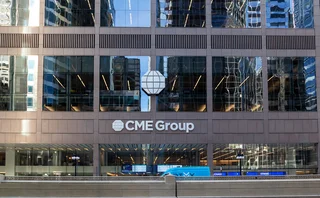
New climate change risk-screening service launched
Service aims to identify the impact of climate change on a firm’s operations
NEWARK, CA – Risk Management Solutions (RMS) has developed a new service to identify the potential physical impacts of climate change on a company’s property and operations. The RMS Climate Change Risk Screening Service uses RMS’s proprietary natural catastrophe models together with climate model output to stress test the impact of future potential scenarios on business portfolios.
Information on the effects of climate change is combined with a range of physical and operational vulnerability measures – for example, a company’s capacity to adapt, its resiliency, and the sensitivities of its suppliers – to identify ‘hotspots of future risk’. The output is a detailed matrix of both qualitative and quantitative data on key risk factors for each property and operation within a portfolio, alongside a ranking of the properties most at risk to help prioritise adaptation needs.
“Climate change, and the global political and public response to it, presents a range of threats and opportunities for corporations in terms of their risk management, growth strategies and brand positioning,” says Celine Herweijer, director of the RMS climate change practice. “The issue is shifting from a peripheral corporate social responsibility concern to a topic for strategic deliberation among executives and investors worldwide. While investors and risk managers can increasingly analyse the financial implications of climate policy, we have witnessed a demand for a tool to evaluate the physical impacts of climate change adaptation, and developed the new screening service to meet this need.”
Only users who have a paid subscription or are part of a corporate subscription are able to print or copy content.
To access these options, along with all other subscription benefits, please contact info@risk.net or view our subscription options here: http://subscriptions.risk.net/subscribe
You are currently unable to print this content. Please contact info@risk.net to find out more.
You are currently unable to copy this content. Please contact info@risk.net to find out more.
Copyright Infopro Digital Limited. All rights reserved.
As outlined in our terms and conditions, https://www.infopro-digital.com/terms-and-conditions/subscriptions/ (point 2.4), printing is limited to a single copy.
If you would like to purchase additional rights please email info@risk.net
Copyright Infopro Digital Limited. All rights reserved.
You may share this content using our article tools. As outlined in our terms and conditions, https://www.infopro-digital.com/terms-and-conditions/subscriptions/ (clause 2.4), an Authorised User may only make one copy of the materials for their own personal use. You must also comply with the restrictions in clause 2.5.
If you would like to purchase additional rights please email info@risk.net
More on Risk management
Transforming stress-testing with AI
Firms can update their stress-testing capability by harnessing automated scenario generation, says fintech advocate
Basel stops short on wrong-way risk
New guidelines a step in right direction, but experts warn they won’t prevent another Archegos
On resilience risk, banks prepare to let the bad times roll
Lenders bolster first-line teams and upskill boards as compliance with new rules bites
Complex EU active account reporting could drive trades out of UK
Draft Emir rules might not force large volumes to move to EU, but will make compliance difficult
Strategies for navigating market volatility in the post-US election landscape
This article examines the key themes of a recent webinar, sponsored by S&P Global Market Intelligence, on market volatility following the US election, including inflation risks, commodities, geopolitical uncertainty, ESG considerations and the role of…
Risk.net’s top 10 investment risks for 2025
Fresh concerns this year include a trade war, a stock market crash and growing social discord
For banks, change risk is inevitable; managing it, optional
Regional bank survey shows steady growth of dedicated change risk functions and adoption of leading indicators
Clearing members ponder the purpose of CME’s mystery FCM
Some think licence will be used to boost crypto clearing capacity, but many questions remain







